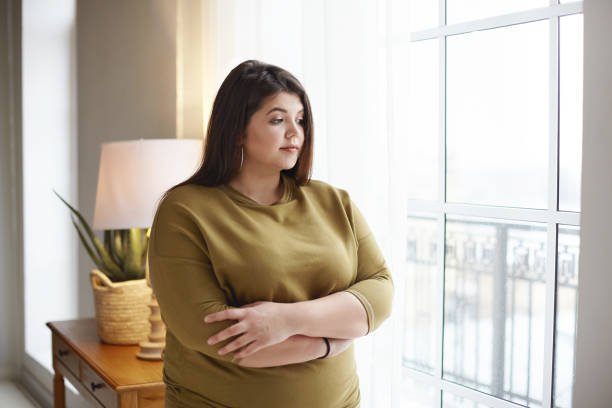For decades, a diagnosis of thyroid cancer often carried with it not just fear of the disease itself, but the looming burden of radioactive iodine treatment—days in isolation, the nausea, the metallic taste, the emotional pain of being kept apart from loved ones. But now, thanks to new findings from a major clinical trial led by researchers at University College London (UCL), many patients around the globe may be able to skip this treatment altogether—without compromising their health.
The results of the IoN (Iodine or Not) clinical trial, published in The Lancet, have been hailed as potentially practice-changing, offering hope and relief to hundreds of thousands diagnosed with low-risk thyroid cancer every year.
A disease that touches young lives
Thyroid cancer may not dominate headlines like breast or lung cancer, but it affects a significant and often younger portion of the population. Globally, an estimated 820,000 people are diagnosed annually. Unlike many other forms of cancer, thyroid cancer frequently strikes people under 40—many of whom are parents raising young children. It’s also a cancer that disproportionately affects women, with women being three times more likely to develop it than men.
Traditionally, patients who undergo surgery to remove the thyroid—an essential, butterfly-shaped gland in the neck that governs metabolism and energy—are often treated with radioactive iodine (RAI) to eliminate any lingering cancer cells. But this form of radiotherapy comes at a cost. It’s not simply a pill and recovery; it’s a process that involves hospital isolation in radiation-shielded rooms, followed by days of avoiding contact with others, especially children, who are more vulnerable to radiation exposure.
For parents, particularly mothers, this isolation can be more than just inconvenient—it can be emotionally devastating.
A quiet revolution, five years in the making
The IoN trial quietly set out to challenge an assumption that had underpinned thyroid cancer treatment for years: that radioactive iodine was necessary, even for low-risk patients. Researchers recruited 504 people aged 17 to 80, all of whom had undergone surgery for low-risk thyroid cancer across 33 cancer centers in the U.K. Nearly a third were under the age of 40—a reflection of how this cancer skews younger.
Participants were randomly assigned to two groups. One received radioactive iodine therapy following surgery. The other group received no additional treatment beyond the operation.
Over the course of at least five years of careful monitoring, the results revealed something astonishing. Among those who did not receive radioactive iodine, 98% remained cancer-free. In the group that did receive the treatment, 96% remained cancer-free. The slight difference, researchers concluded, was statistically insignificant—essentially, the outcomes were the same.
Professor Allan Hackshaw, a lead investigator from the UCL Cancer Institute, summed it up simply: “Our results show that radioactive iodine represents over-treatment in these particular patients and is not required to improve their outcomes. The only impact of not receiving this radiotherapy was a positive one on people’s quality of life.”
An end to isolation and a return to normal life
For patients like those involved in the study, the emotional and logistical toll of radioactive iodine has long been a heavy burden. Aside from the physical side effects—nausea, fatigue, changes in taste, and in rare cases, damage to salivary or lacrimal glands—the forced isolation following treatment can deeply disrupt a person’s life. Parents are asked to avoid holding their children, to sleep in separate rooms, and in some cases, to remain physically distant from loved ones for days or even weeks.
Professor Hackshaw emphasized how this could now change. “Being spared radioactive iodine therapy means they will be able to get back to a near-normal life much more quickly, as well as receiving the emotional and physical support of their families in the weeks after their operation.”
For a mother with a toddler at home, or a young adult balancing work and recovery, that return to normalcy is more than a convenience—it’s a lifeline.
Global implications for health care and patients
Dr. Ujjal Mallick, chief investigator of the trial and an oncologist at the Freeman Hospital in Newcastle, said the study could lead to a sea change in thyroid cancer treatment. “This study represents a major improvement in how thousands of thyroid cancer patients might be treated worldwide.”
Beyond the emotional relief and improved quality of life, the medical and economic implications are profound. By avoiding unnecessary radioactive iodine treatment, health care systems can reduce hospital stays, cut radiation-related costs, and alleviate pressure on clinical staff.
Dr. Mallick also noted the small but serious long-term risks associated with radioactive iodine, including the rare possibility of inducing new cancers. Avoiding the treatment altogether, when it’s safe to do so, eliminates these risks entirely.
Dr. Kate Newbold, Consultant Clinical Oncologist at The Royal Marsden NHS Foundation Trust and co-investigator of the study, put it in no uncertain terms: “IoN is an exemplar study that shows that the U.K. can successfully run major practice-changing clinical trials in cancer—with impacts for patients and health care systems internationally.”
Changing the standard of care—immediately
Given the strength and clarity of the findings, the researchers are urging health authorities and cancer care institutions to revise their clinical guidelines. In the U.K. alone, they estimate that around 2,500 patients per year could avoid radioactive iodine. Worldwide, that figure rises to an astonishing 400,000 people annually.
There’s no need, the study’s authors argue, to wait for more evidence or to hesitate in changing practice. The data is in. The risk is low. The benefit is enormous.
Kate Farnell, CEO of Butterfly Thyroid Cancer Trust, voiced what many patients and families have long felt: “Many tell us that having radiation treatment in isolation away from their family is perhaps the hardest part of their cancer journey. This trial has shown that in many patients this will no longer be necessary.”
A scientific victory with a human heart
For all the numbers and percentages, for all the citations and statistical models, what makes the IoN trial so powerful is its human impact. It’s not just about whether a treatment works, but whether it is truly necessary—whether the cost, both physical and emotional, is worth it.
This trial tells a new story: one of precision, compassion, and respect for the patient’s experience. It reflects a growing shift in modern medicine—away from blanket approaches and toward individualized, evidence-based care that prioritizes both outcomes and quality of life.
For patients newly diagnosed with thyroid cancer, the message is clear. If your case is low-risk, you may no longer have to brace for the cold walls of a radiation room, or the ache of separation from those who love you most. You may just need surgery—and then, you get to go home.
Home to heal. Home to hold your children. Home to reclaim your life.
And that is not just good science—it’s deeply good news.
Reference: Ujjal Mallick et al, Thyroidectomy with or without postoperative radioiodine for patients with low-risk differentiated thyroid cancer in the UK (IoN): a randomised, multicentre, non-inferiority trial, The Lancet (2025). DOI: 10.1016/S0140-6736(25)00629-4






